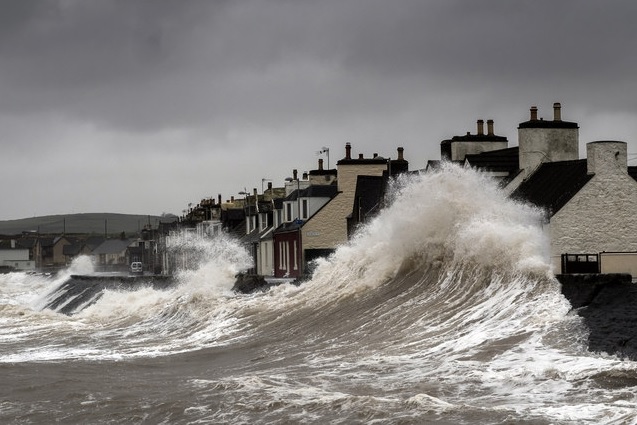
Weather Bomb – What is it?
It seems the term weather bomb has suddenly appeared in the nations vocabulary without much in the way of an explanation. We wanted to try and remedy that by looking at what it means and why it is being used so much.
News
There is no doubt the term weather bomb makes for rather good headlines and as always these terms seem to appear on newspapers and news sites first. Along with naming storms the term seems to really fit the news world and the people that consume what they produce. This is magnified by the colour weather warnings given out by the Met Office and the fact that a huge number of people have their app that informs you of a warning in your area. This all combines to create quite a sensational approach to weather news but it was perhaps partly the point; people take a lot more notice of storms now they have names and colour warnings.
Weather Bomb – Definition
The definition of the term according to Google is:
“a rapidly developing severe storm, technically defined as one in which barometric pressure at the centre of the storm drops by at least 24 millibars over a 24-hour period at or north of 60° latitude.”
The Met Office goes into a little more detail but begins by saying it is an unofficial term so despite it’s growing popularity it is not a meteorological term. The MO describes it as a low pressure system where the central pressure drops below 24 millibars in 24 hours. This is called explosive cyclogenesis; the explosive part no doubt spawning the “bomb” part of the phrase.
More Detail
The explosive cyclogenesis process involves a rapid acceleration of air which is caused by the jet stream. The jet stream can remove air from the column which reduces its weight and this causes the pressure at sea level to drop. This lower pressure causes more air to be brought in from the bottom and makes the whole system rotate faster and faster. It is a positive feedback loop that continues to increase resulting in high wind speeds and the damaging results we all see on the news.
Weather Bombs
As this terms takes hold it may well be used out of context a lot and often just added to any bad weather report. Recently the Metro used it in a headline but did back it up with a quote from the Met Office which, although, didn’t use the term weather bomb, did mention explosive cyclogenesis.
Whatever we call the storms we are seemingly seeing more and more often the results are often the same. We are seeing high winds and flooding more commonly and with potential rising sea levels the flood risks are certainly becoming more important. If you need a flood risk assessment for planning permission on a domestic or commercial site then get in touch today.